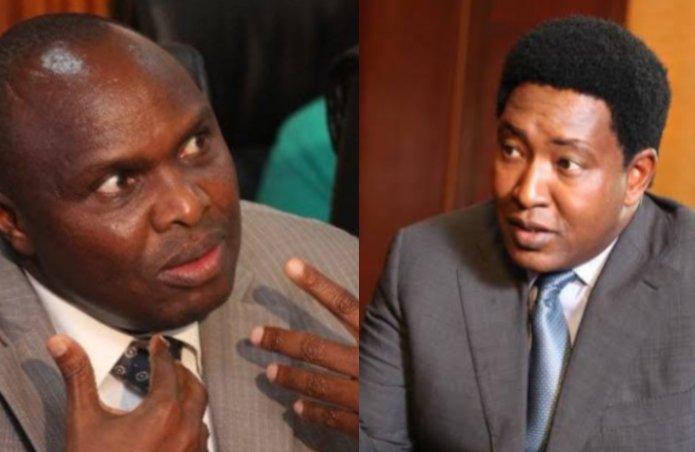The announcement of new ambassadorial appointments in Kenya has sparked sharp criticism, and much of the blame has landed on the desk of Felix Koskei, the Head of Public Service.
As the President’s chief advisor on public service matters, Koskei is the gatekeeper of these critical postings. His decision to approve and release a list that so clearly favors certain ethnic groups has left many Kenyans feeling betrayed and excluded.
This is not a small mistake; it is a deliberate action that undermines the very idea of inclusivity and unity that the government repeatedly promises.
The list of appointees includes names like Amb. Galma Mukhe Boru to Addis Ababa, Amb. Anthony Mwaniki Muchiri to Ankara, Amb. Lucy Kiruthu to Bangkok, Henry Wambuma to Bujumbura, Amb. Catherine Kirumba Karemu to Dar es Salaam, Amb. George Morara Orina to Dublin, Abdirashid Salat Abdille to Jakarta, Amb. Maurice Odhiambo Makoloo to London, Amb. Joseph Musyoka Masila to Riyadh, Amb. Edwin Afande to Vienna, and Florence Chepngetich Bore to Windhoek.
Others include Amb. Kipkosgei Toroitch to Kampala, Jayne Jepkorir as Consul General in Dubai, David Mwangi Karanja, and Mohamed Ramadhan Ruwange. At first glance, the list may seem balanced, but on closer inspection it tilts heavily toward just a few ethnic communities Kikuyu, Kalenjin, Luo, Kamba, Kisii, and Somali.
Entire groups, such as the Maasai and some coastal communities, have been ignored altogether.
Narok Senator Ledama Ole Kina directly accused Koskei of driving this agenda. In a statement on X, he condemned Koskei for allowing such an exclusionary list to be published, saying that it shames the government’s claims of inclusivity.
Ole Kina emphasized how the Maasai nation, among others, has been completely sidelined. His words struck a chord because they reflect what many Kenyans have been quietly thinking that the system is rigged to favor a select few at the expense of the majority.Koskei’s leadership style has long been questioned.
In the civil service, he has often been portrayed as a man who centralizes power and enforces decisions that prioritize his own ethnic interests.
Insiders claim that nothing gets approved without his personal say-so. This reputation, combined with the ambassadorial appointments, paints a picture of a man more committed to tribal loyalty than to national service.
The Constitution calls for equity and fairness in public appointments, but Koskei’s actions show the opposite.The disappointment is deeper because Kenyans had been promised a broad-based government where everyone had a place.
Instead, what they see under Koskei’s watch is favoritism and exclusion. The anger spilling over on social media is proof that the people are paying attention. Many accuse him of being the architect of division at a time when the country badly needs unity.
Felix Koskei must understand that this moment will define his legacy. If he continues to push ethnic favoritism, history will remember him as the man who betrayed Kenya’s promise of inclusivity.





















Add Comment